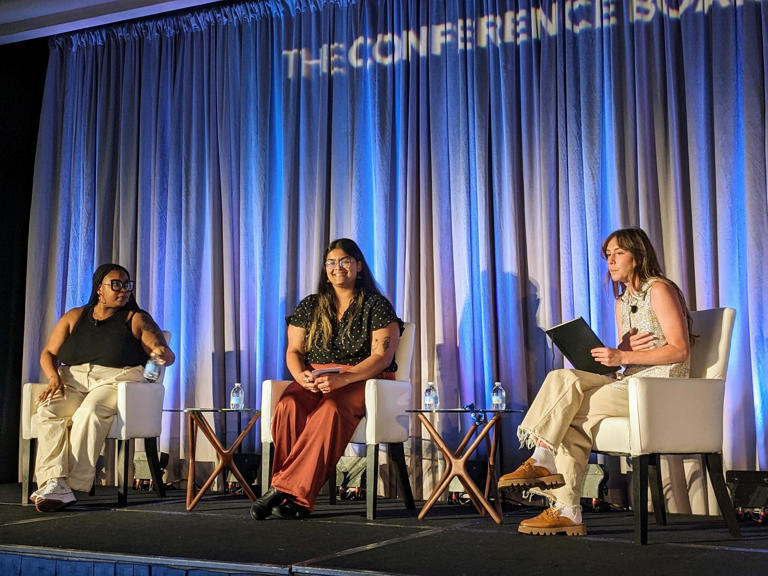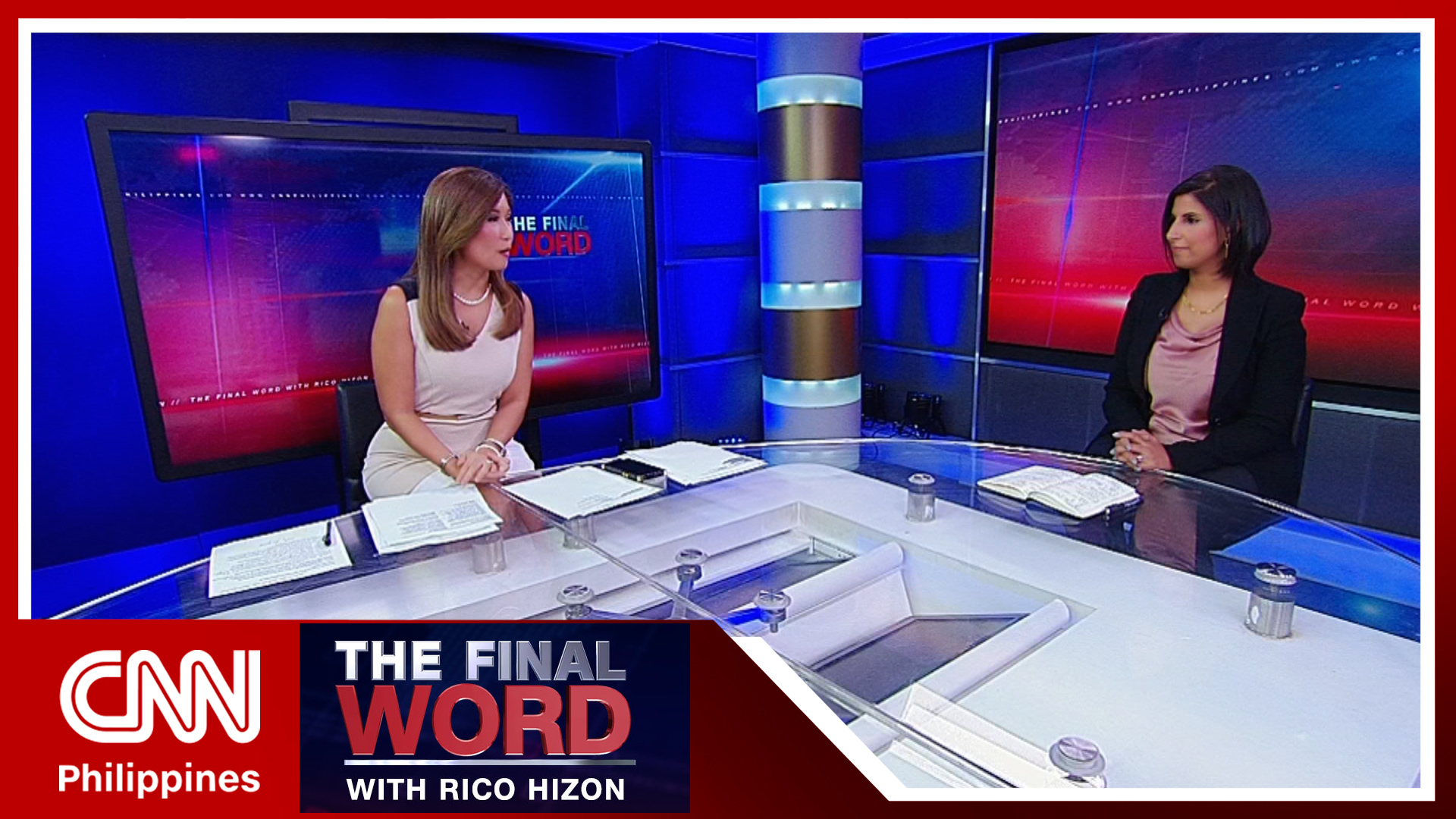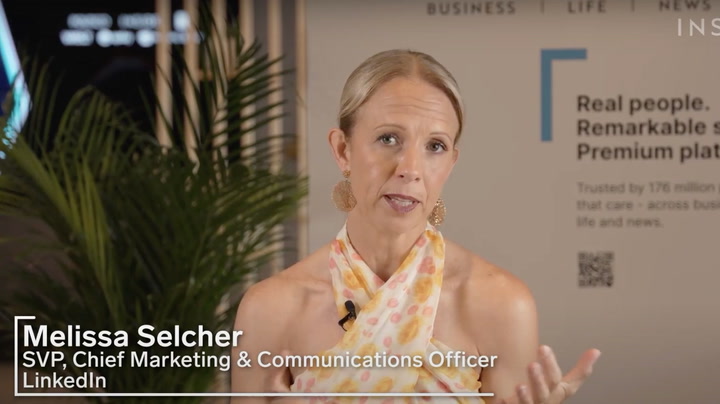Story by ayork@insider.com (Alexandra York) • July 23, 2023

Maia Ervin (left), Meenakshi Janardhanan (middle), Alexandra York (right) speaking at a Conference Board panel. The Conference Board© The Conference Board
I recently sat on panels about what Gen Zers want from work.
My fellow panelists and I said compensation, flexibility, and opportunities to grow were key.
Here's my advice for leaders who seem unsure about how to talk with their young employees.
It sometimes felt like a symposium of scientists discussing an alien species they'd discovered: Out there, somewhere, were Gen Zers.
I was on stage at a conference, tasked with leading a conversation about the future of work from a Gen Z perspective.
While I was joined by two fellow Gen Zers — other specimens of this alien genus — the audience seemed to contain only a handful of people under age 30. Seems weird considering we are literally the future of work, right?
Alas, my panelists and I trudged on, sharing our expectations about our essentials — things like fair compensation, work-life balance, and development opportunities to grow our careers. Those Gen Zers who've made it into the workforce — we range from age 11 to 26 — tend to agree with these ideas, studies show. But, from my experience, older generations sometimes seem to have a hard time grasping why we'd ever strive for both a balanced life and a successful career.
So at this event and another I took part in last week, I expected to hear all the tropes: "Gen Z is entitled," "Gen Z just doesn't understand the way things work," "Gen Z is asking for too much."
What surprised me most was that many leaders were actually willing to hear us out. They want to attract young employees and make their workplaces better. But many of them seem scared to make any drastic changes, and some don't even know where to start.
To me, it's pretty simple. Here's my advice for hiring managers, bosses, and leaders hoping to draw in Gen Z workers.
We don't bite. You can talk to us.
In one conversation, we spoke about the importance of empathy in the workplace.
Gen Zers often aren't scared to ask questions, challenge norms, or submit our own ideas. In return, we ask for empathy and transparency from decision makers.
When we turned to the audience for questions, one attendee asked: "How do we start these conversations with Gen Zers?"
Related video: Are Gen Zs the most challenging generation to work with? 3 in 4 managers think so (CNBC) Duration 8:35 View on Watch
She added that she wants to start relationships and open lines of communication with young workers, but doesn't know how.
Our answer: Just start talking. Open meetings with "How are you?" Take time to get to know their hobbies. Share a bit about yourself so that they feel comfortable opening up to you.
A quick chat about your favorite TV show can go a long way toward building rapport.
It's possible for Gen Z to want flexibility and to grow.
Members of older generations often allude to the idea that Gen Zers are demanding the impossible.
Some of them seem to think a balanced personal life and a successful career are mutually exclusive.
One attendee told me his Gen Z kids want to have an in-office experience and reap the benefits of learning from older coworkers or bumping into an exec in the hallway. But, he huffed, they don't want to do it five days a week from nine-to-five!
"So what is it? What do Gen Zers want?" he asked.
My answer: "Can't they have both?"
Much of Gen Z actually likes going into the office. But some days, it's just not necessary. And that's OK because we actually know how to work Zoom, Slack, and other forms of digital communication really well.
We can have both. The sooner we realize that, the happier and more balanced we'll all be.
Enough of the office perks. We just want to be part of it.
Based on my conversations at these panels, it also seems that some executives and corporate leaders are stuck on the idea of office perks.
A ping pong table and meditation cubes will bring the young people running, right?
Not exactly.
One conversation focused heavily on the use of office space in the future work world — something execs, developers, and workers are all considering today.
While it isn't universal as to the best city, type of space, or number of days per week spent in the office, there was one agreement: What we're really looking for is a sense of purpose in our office spaces.
No longer are the days in which a ball pit makes going to the office worth it — if it ever did. What does is scheduled mentorship sessions, specific places for collaborating on projects, and open doors to chat with whomever you want to meet IRL.
Oh, and lunch on the company once in a while doesn't hurt, either.

 DailymotionAdapting to the rise of Gen Z in workplaces | The Final Word
DailymotionAdapting to the rise of Gen Z in workplaces | The Final Word

No comments:
Post a Comment